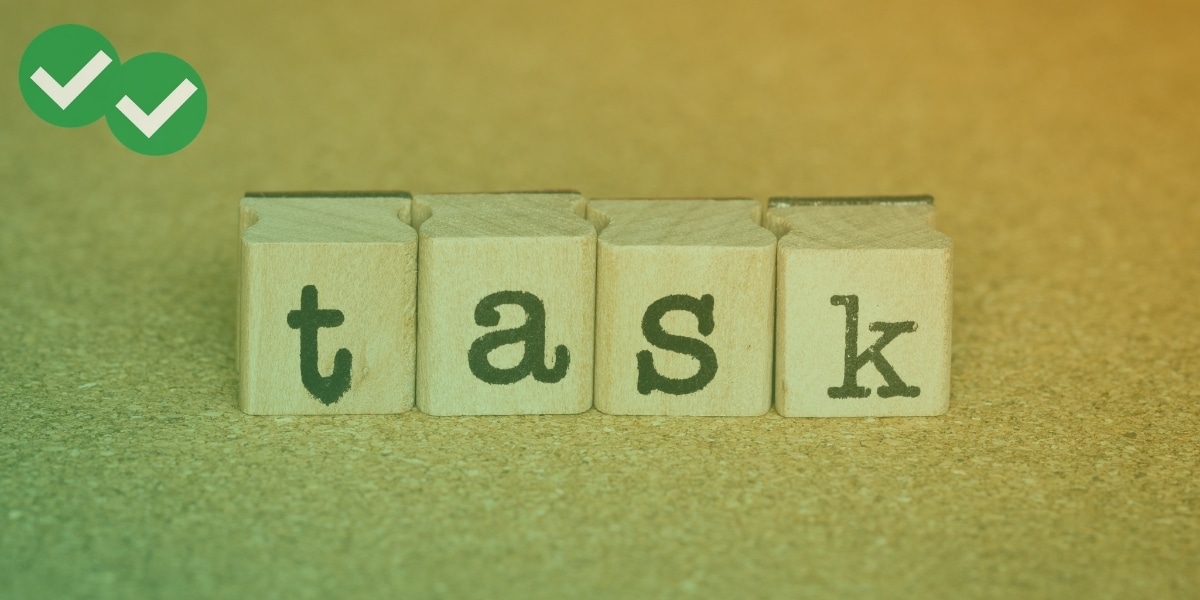
In the official score guide for IELTS Writing Task 2 (PDF), you can see that your essay will be marked based on four categories: Task Response, Coherence and Cohesion, Lexical Resource, and Grammatical Range and Accuracy. While each category represents 155 of your score, Task Response is arguably the most important category.
Why is Task Response the most important? Well, true to its name, Task Response measures whether you actually responded to the questions you were asked. Because of this, your Task Response influences all of the other three categories. If you haven’t correctly responded, then your Coherence and Cohesion (how clear your answer is), your Lexical Resource (whether you used good words to give a good answer) and your Grammatical Range and Accuracy (whether your sentence structure addresses the overall task) will also be at least partly incorrect.
Why Task Response Affects All IELTS Writing Task 2 Rubric Categories
Let me give you a simple example of how poor Task Response can lower your scores across all categories on the rubric. Suppose you are responding to this practice question:
- With modern transportation, workers and students are increasingly mobile, and have more and more opportunities to study and work abroad.
Discuss the advantages and disadvantages of this development. Give reasons for your answer and include any relevant examples from your own knowledge or experience.
If you misunderstand this prompt, then you might mistakenly write about the way students and workers use mobile devices such as phones and tablets on public transportation such as the bus or the city train system. Or you might accidentally only focus on study abroad experiences and forget to address work ones. You could also possibly forget to give relevant details for every opinion to state.
If you make any of the kinds of mistakes above, it will affect your Coherence and Cohesion; writing about the wrong topic will prevent you from addressing the correct topic clearly and coherently. Partly addressing the topic will similarly hurt your ability to be coherent about the entire topic. And failing to give supporting details, a key requirement of the task, will make for paragraphs that feel incomplete and main ideas that seem less clear. This too will impact Coherence and Cohesion.
Similarly, if you make significant mistakes in Task Response, your Lexical Resource (use of vocabular) and Grammatical Range and Accuracy scores will suffer; even if you are using otherwise good words and grammar, you aren’t using the right words and grammar for the real task at hand.
Tips for Doing Well in IELTS Writing Task 2: Task Response
- Take a few extra seconds to reread the question after reading it once. Make sure there’s nothing you misread or mix.
- Make sure that the notes from your IELTS essay brainstorming cover every part of the question. It’s a lot harder to go in and add a point you missed after you’ve already written the essay.
- Whenever you state an opinion, think carefully. What supporting details will be the most convincing to a reader? What details or examples will be clear “reasons” and “relevant examples?”
Additional Task Response Resources
To see a model response to the example question we looked at above, check out our example agree/disagree IELTS Writing Task 2 essay. This is a perfect example of good Task Response. And as you read that essay, note the way that Coherence and Cohesion, Lexical Resource, and Grammatical Range and accuracy ae all excellent partly because of how good the Task Response is.
Beyond that, it’s important to remember that Task Response is the “big picture” part of the official rubric, the category that deals with how accurate the essay is as a whole. To see the even bigger picture that Task Response fits into, see Magoosh’s Complete Guide to IELTS Writing Task 2. And of course, you may also benefit from our guides to the other rubric categories:





